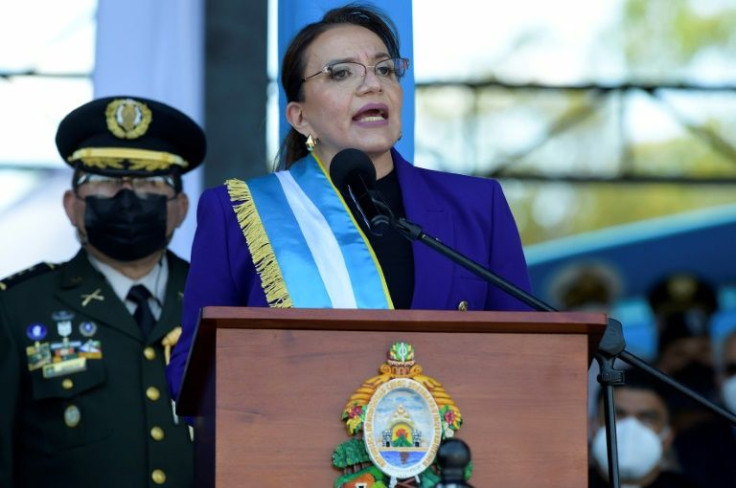
Honduran President Xiomara Castro is threatening to shut down the U.S. military base in the country if the administration of incoming President Donald Trump carries out mass deportations of the country's nationals once he takes office.
Addressing the country with a New Year's message, Castro said that a "hostile attitude" from the U.S. toward Honduran migrants would lead to a review of the country's cooperation policies with the country, "especially in the military area."
"For decades and without paying a cent they have kept military bases in our territory. They would no longer have a reason to exist in Honduras," Castro added.
The country's opposition criticized the message, with Liberal Party leader Jorge Cálix saying President Castro is putting Honduras in "grave danger." "She has declared war on ideological and personal matters, and that is a mistake," Cálix said.
He went on to highlight the positive effects the base has in the country, saying they help Honduran troops carry out anti-drug operations across Central America.
"She knows we have no capacity to challenge the U.S. in any way and that the harm for Honduras would be terrible," added opposition politician Olban Valladares. "She must think about the Honduran people and stick to diplomacy. Her interpretation is undoubtedly absurd."
Administrations across Latin America are scrambling to figure out how to respond to Donald Trump's promise to carry out the "largest deportation operation in American history." Several countries have already declined taking deportees from third countries, including El Salvador, Panama and the Bahamas, all of which were reportedly contacted for that purpose.
Poor relations with countries such as Cuba and Venezuela, and their consequent unwillingness to receive deportees, could prevent the incoming administration from forcibly removing scores of people it has promised to target.
Mexico is now reportedly open to the possibility to do so after initially saying they would push back if the Trump administration on the matter. President Claudia Sheinbaum said the countries can "collaborate through different mechanisms" in such cases. She did not provide any details.
"There will be time to speak with the United States government if these deportations really happen, but we will receive them here, we are going to receive them properly and we have a plan," Sheinbaum added, clarifying that the country does not favor such a scenario.
Guatemala, in turn, is also reportedly showing willingness to receive deportees from thurd countries. The decision comes as the administration of Bernardo Arevalo de Leon seeks to have smooth relations with its incoming American counterpart.
Concretely, Guatemala would receive citizens from other Central American nations, which constitute a large portion of those making their way up north. "We want to be part of the solution," a Guatemalan official who requested anonymity told Reuters.
Migrants from the so-called "Northern Triangle," which comprises Guatemala, Honduras, and El Salvador, accounted for about 20% of all immigrants living unlawfully in the U.S. by 2022, according to a Department of Homeland Security report cited by the outlet.
© 2025 Latin Times. All rights reserved. Do not reproduce without permission.





